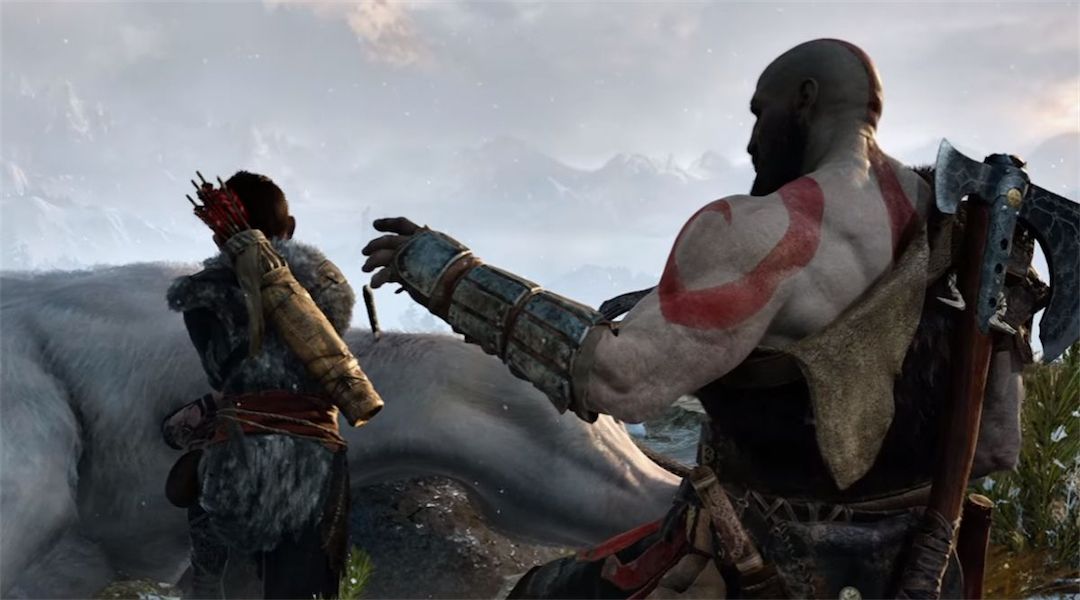God of War's director explains the reasoning behind moving Kratos from Greek to Norse Mythology in Santa Monica Studio's forthcoming game starring the Ghost of Sparta.
As many gaming fans will agree, the reveal of God of War not only provided one of the biggest E3 2016 surprises, but also gave an exciting look at the new direction in which the game is moving, with the upcoming action title's shift in camera perspective, its more measured pacing, Kratos' interactions with his son, and perhaps most interestingly, the game's inspirations from Norse mythology. In order to unpack the reasoning behind developer Santa Monica Studio's decision to pluck Kratos from Greek lore and place him within the context of ancient Scandinavian mythos, God of War's director, Cory Barlog, spoke to GameSpot during a live E3 stage show about the matter.
For starters, Barlog brought up the notion of cultures' mythological belief systems coexisting with one another, but only being "separated by geography." With this being the case, the implication is that God of War's protagonist, Kratos, traveled north from Greece to Norway, but the game's director asserts that even though the Ghost of Sparta is in a Norse setting, he isn't living in "the viking era," as some fans have suggested.
"A lot of people think Norse, they think viking, but there's really this amazing prehistory--the migration, and then prior to that, the pre-migration era. In the viking era, they always talked about, 'The gods have abandoned us.' Thor and Loki and Odin all walked the Earth at one point, but they're not around any more. [The vikings] fight for them, but they're not there. This idea that we're at is saying, 'We're at a prehistory point, where gods did walk the Earth, when monsters were real, before they became extinct.'
"It's a fun space to be in because it allows us to paint our own image of Norse mythology as opposed to anyone else's."
Although the God of War developers eventually settled on a Norse environment for the new game, it almost wasn't the case. As it happens, Barlog also recently revealed that he and Santa Monica Studio were close to giving the title an Egypt setting. However, even though the director professed his love for the idea of Kratos coming into contact with Egyptian mythology, he explained that steeping the game in the African country's lore had the potential to distract from the developer wanting Kratos to be the central focus.
As far as the motive behind Kratos' move from Greece is concerned, Santa Monica Studio has yet to divulge the reason why the titular God of War has changed locations. Nevertheless, the developer has revealed that contrary to many fans' initial theories that the game might be a reboot or have a different protagonist, it takes place after the third game. Plus, it has been confirmed that the new God of War is not open world, but as Barlog puts it, is "open."
Of course, since God of War was just announced last week, concrete details about the forthcoming title are still relatively scant. Nevertheless, fans of the franchise should expect Santa Monica Studio to slowly feed more information about the game to the public as the year progresses. In the meantime, folks would do well to give God of War's demo another once-over in order to discover the secrets of the gameplay footage's Easter eggs.
God of War is currently without a release date, but it is expected to be a PlayStation 4 exclusive.
Source: GameSpot

